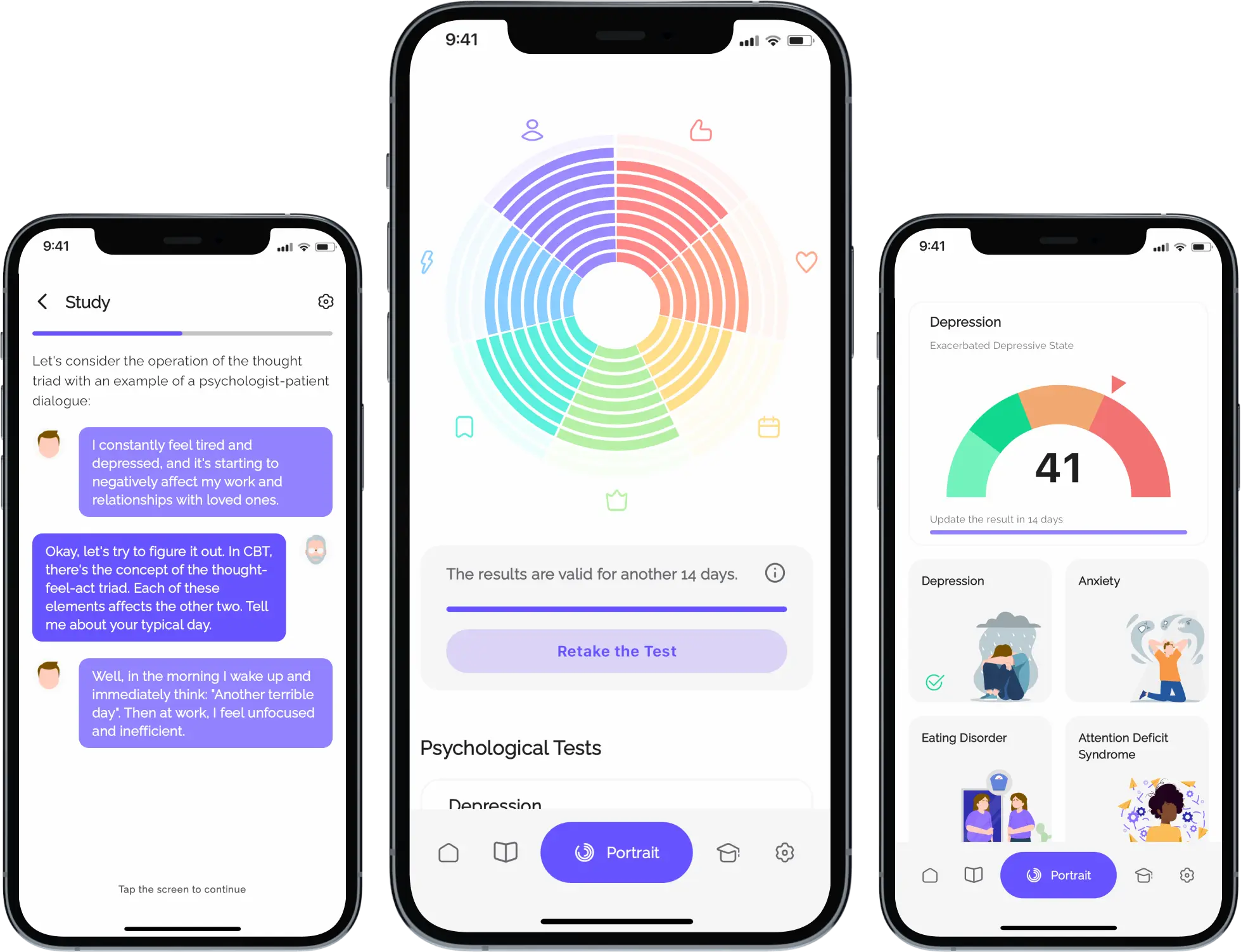
When you're depressed, it's very hard to start doing anything. You wait for motivation that seems never to come. Like a bear in winter hibernation, you sit in your den, waiting for better times.
You might think or want to engage in some activity, but you are confronted with the thought that none of them will bring you pleasure or that it will be too difficult.
Such behavior further distances you from normal life, from your favorite activities, friends, family. You feel helpless, criticize yourself for inaction, and this plunges you into even deeper depression.
The cycle has closed.
But it's time to break out of it.
Let's start by talking about idleness and lack of motivation, and then look at effective techniques and recommendations for dealing with this.
One of the most destructive aspects of depression is that it paralyzes your willpower. You've likely noticed that you put off disliked daily tasks for later and procrastinate.
More content in our app
You're only seeing a portion of the content. In the app, you'll find numerous interactive articles. Additionally, there are psychological tests to track your mood dynamics, a daily planner, an automatic thought journal, and much more!

You feel that there's no motivation for anything, everything seems too difficult, so you succumb to this state and do nothing.
The longer it goes on, the harder it is to make yourself do anything. Such emotional imprisonment can last for weeks, months, and even years.
If you really want to change something in your life, the only way is to start doing it right now, at this very moment.
Fumio Sasaki
Idleness is one of the main paradoxes of human nature.
Have you ever noticed that some people seem to dive into the whirlpool of life and take from it all they can, while others seem to keep their distance from life, limiting themselves in everything?
Did you know that isolating a person for several months, cutting them off from usual activities and contacts, leads to serious depression?
But when you're depressed, you do the same thing to yourself, as if sentencing yourself to punishment. Do you really want to suffer in inactivity like this? These are questions to think about, but the answer, we think, is obvious.
If you visually depict what inactivity looks like in the mind during depression, it would roughly be like this:
A person thinks about a type of activity they need/want to do.
I'm too tired/I won't like it/My friends won't want to spend time with me/I won't succeed/Nothing will lift my mood.
Sadness/anxiety/hopelessness.
Inactivity/procrastination.
Thanks to such thoughts and behavior, you increasingly deprive yourself of the opportunity to enjoy your own successes, time with loved ones, favorite activities, life in general.
So why doesn't motivation come at all?
It's quite possible you think you can't do anything without motivation.
But is that really the case? Haven't you ever done something simply because it needed to be done? Are you always highly motivated to go to work?
When we talk about a lack of motivation, what we're really saying is: "I don't want to do this."
We can disguise it as: "It's too hard," "I won't succeed," "I'm not ready," but the underlying meaning is that you don't want to do it.
And that's perfectly fine, believe me. We don't always do what we want, and often do what we don't want. That's life.
In depression, you generally don't want much of anything, most likely, you want to lie down and do nothing. But lying down like this for a day, two, a month, definitely won't make you feel any better.
Let's consider, for example, a dialogue between a client and a psychologist, where the issue of lack of motivation was discussed.
If you, like the client in this dialogue, tell yourself: "I need to feel the desire to do so," and get stuck in inaction, then know that action precedes motivation. Not the other way around, it's a myth.
Behavior creates motivation for those who decide to do what needs to be done. Action is primary, motivation is secondary.
We've already talked about the relationship between thoughts, emotions, and behavior, that all these three components affect each other, more precisely: all emotions and actions are the result of your thoughts and attitudes.
This means that changing your thoughts will lead to changes in your emotions and, consequently, to changes in your behavior. It's in your hands to change the closed circle of inactivity to a circle of productivity.








